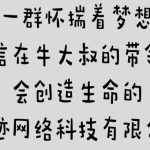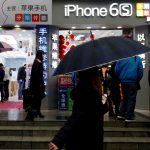China Shut Down Apple’s Book And Movie Services. What’s Next?
The New York Times reported Thursday that Apple’s iBooks Store and iTunes Movies were shut down in China at the request of the government, just six months after opening.
News of the closures come just as Apple prepares to announce earnings next week amid an iPhone market that’s been softening as developed markets reach saturation points. iPhone sales in China have buoyed up Apple’s financial results in recent quarters, and Apple is looking to China as its source of growth in future quarters.
Chinese consumers and businesses spent $59 billion on Apple products during the company’s last fiscal year, which ended in September 2015. Last October, Apple reported 99% year-over-year revenue growth in the country. CEO Tim Cook even said he thought Greater China would become would grow into “Apple’s top market in the world.” Greater China, which includes Taiwan and Hong Kong, accounts for about 24% of Apple’s total revenue. Only the United States contributes more of Apple’s sales today.
Apple services like iBooks and iTunes Movies are revenue generators, but their main function, arguably, is to encourage people to buy Apple hardware. So the availability of services like e-books and online movies are crucial to the experience of using an iPhone or iPad. The absence of some services in China could seriously hurt device sales.
As the New York Times report highlights, the Chinese government has been relatively friendly to Apple in recent years, while other U.S. companies doing business there have faced tough scrutiny.
The iPhone SE In China
The iTunes Movies and iBooks Store closures also come just as the new low-priced ($399) iPhone SE is starting to make inroads in the Chinese market. The device had 3.4 million orders before launch, and is now selling enough to make local rivals like Xiaomi, Huawei, Vivo, and Oppo feel the pain.
Complicating matters is the issue of encryption back doors. Apple is fighting against the U.S. government’s desire for a skeleton key that can unlock encrypted data on users’ iPhones. The Chinese government would like similar access to its citizens’ iPhones; it has, within the past two years, asked Apple to supply the iOS source code, a request Apple refused.
However, the Chinese government told Apple a year ago it intended to perform a “security audit” on Apple products. Spooked by the Snowden revelations in 2013, the Chinese government wanted to make sure that the U.S. government had not built any secret back doors in the devices through which it could spy on Chinese users. The Chinese reportedly did their audit, but nobody knows the results, or the actions they prompted.
Chinese authorities made just over a thousand requests of Apple to provide encrypted data from user devices in the second half of last year. Apple complied in about two-thirds of the requests.
The issue of back doors or skeleton keys for Chinese iPhones won’t go away anytime soon. If Apple continues refusing to provide a way for government officials to break into Chinese iPhones (as it has for U.S. phones), Chinese authorities could impose tougher rules on Apple.
In one dark scenario, Apple may be asked to either hand over iPhone encryption keys or exit the Chinese market. The Chinese government would like to see local phone makers like Xiaomi and Huawei begin challenging Apple as the world’s top provider of premium phones.
Apple’s movement into China got underway when the iPhone 3GS went on sale through China Unicom (the country’s second largest carrier) in late 2009. Apple later struck an important 2013 deal with the country’s largest carrier, China Mobile, to sell the iPhone. And sales of the iPhone 6 and 6s lines have put Apple at or near the top of the pile in China.
Fast Company , Read Full Story
(15)














